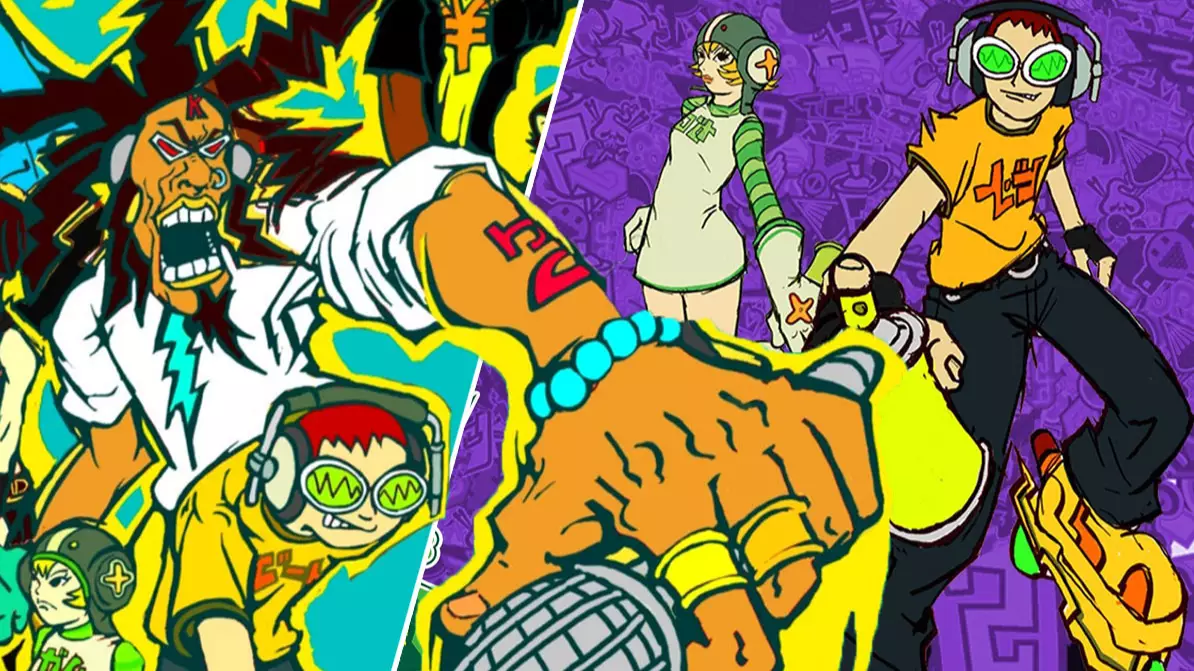
Words: Alan Wen
For millions, 1999's Tony Hawk's Pro Skater was the game that defined their childhood. It wasn't just a terrific game in and of itself, but many kids who spent hours mastering its tricks and secrets also absorbed the whole skating culture, prompting them to take up a skateboard themselves instead of just a controller. Few games can claim to have as much of a cross-cultural impact.
I was personally untouched by the THPS phenomenon. I suspect this was partly due to the fact that the game first launched on the original PlayStation at a time when I was still very much a staunch SEGA fanboy. Even if the franchise would go multi-platform, it remains synonymous with PlayStation, with its 2000-released sequel THPS2 holding the aggregated honour as Metacritic's greatest PS1 game of all time. Hell, ahead of the upcoming THPS 1+2 remaster's official reveal, even Geoff Keighley was teasing the return of a "classic Playstation 1 game".
Advert
Sure, as a disgruntled diehard Dreamcast owner, I could have jumped on the halfpipe bandwagon later, when THPS1 did eventually release on SEGA's final console in Europe on June 29, 2000. But the truth was I already had my eyes gazed fixed eastward, towards another future.
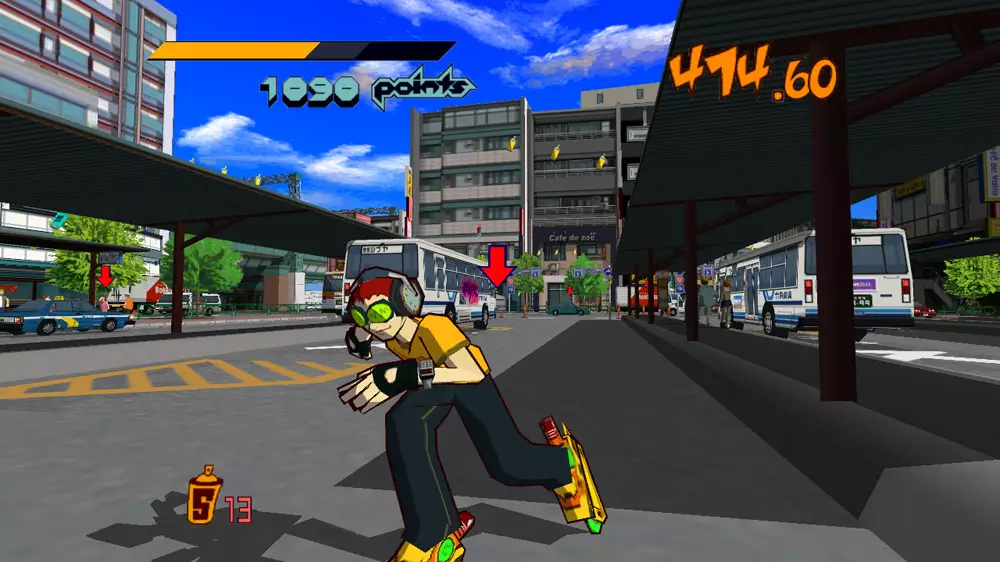
On this same date, June 29, Jet Set Radio was released on Dreamcast in Japan. Another skating game, albeit swapping out a skateboard for a pair of inline skates, it would be easy to dismiss it as SEGA's attempt to ride on THPS's coat-tails.
However, Jet Set Radio was no imitator. Instead, it was a bold innovator, a standout among many of SEGA's other hugely creative first-party efforts in the Dreamcast era. In many ways, it's actually the complete antithesis of the Tony Hawk's series.
Advert
For starters, Neversoft's title was a sports sim at heart, and even if the PS1 visuals look hilariously dated now, it was clearly aiming for a realistic depiction of skateboarding (which you can really see in the super-photorealistic graphics of the remaster). That sense of real-world authenticity is evident from the licensing of Hawk's name, likeness and input in development (alongside other famous skateboarders of that time, like Bob Burnquist and Kareem Campbell) to the authentic punk and ska soundtrack featuring bands like Dead Kennedys, Goldfinger and Papa Roach.
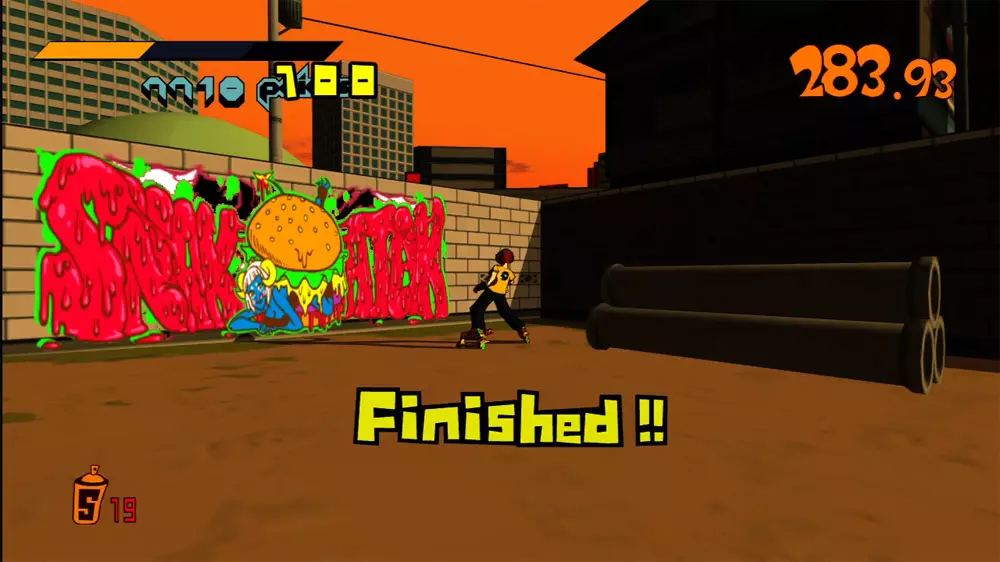
Jet Set Radio was the very opposite of realistic. It wasn't even a sim, notable in its pretty simplistic tricks and combo system based on contextual jumps and grinding. It was really more a 3D platformer you happened to move and jump around in using a pair of skates.
While the setting was strongly inspired by SEGA's Smilebit division's home turf of Tokyo, it really stands out for going against the trend of chasing photorealism and instead pioneering cel-shading, a rendering technique that gave 3D characters the impression of being hand-drawn cartoons, defined with thick outlines and popping with vibrant colour.
Advert
Instead of grabbing a licence of whatever music was in at the time, Hideki Naganuma composed his own wildly catchy and eclectic soundtrack, covering genres like J-pop, hip-hop, funk, dance, acid jazz and trip-hop. Even the few licensed tracks really did come from obscure underground acts like Japanese indie duo Guitar Vader, responsible for a bizarre tribute song to Super Mario (in a SEGA game!).
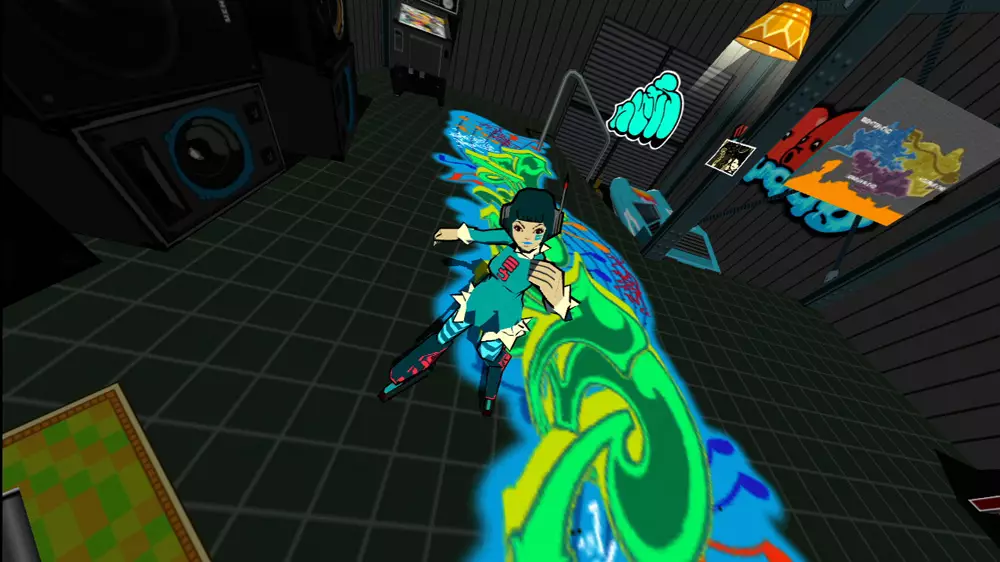
Besides the diversity of the character design, its proto-open world was also lit with (SEGA trademark) blue skies, while NPC crowds, colourful neon street signs and graffiti made the concrete jungle burst with life. It's a stark contrast with the real-world levels in THPS that never really deviate from its uniformly grey palette.
Sure, THPS may have embodied skateboarding culture much like that old rallying cry, "Skateboarding is not a crime." But Jet Set Radio's story makes its anti-establishment sentiments explicit. This is, after all, a game where you play as a group of youths called the GGs who use graffiti to assert their identity against the territorial takeovers from rival gangs and soulless corporations.
Advert
From the first few moments you've tagged a couple of buildings and buses in Shibuya-cho, you immediately feel the unwelcome presence of a fascist police force hut-hutting after you with truncheons, eventually escalating to attack dogs, SWAT teams and tanks. Given what we've seen in recent real-world protests, or even the 1999 Seattle WTO protests, Jet Set Radio actually had its finger on the pulse depicting art as resistance and the police's warped notion of proportionate response.
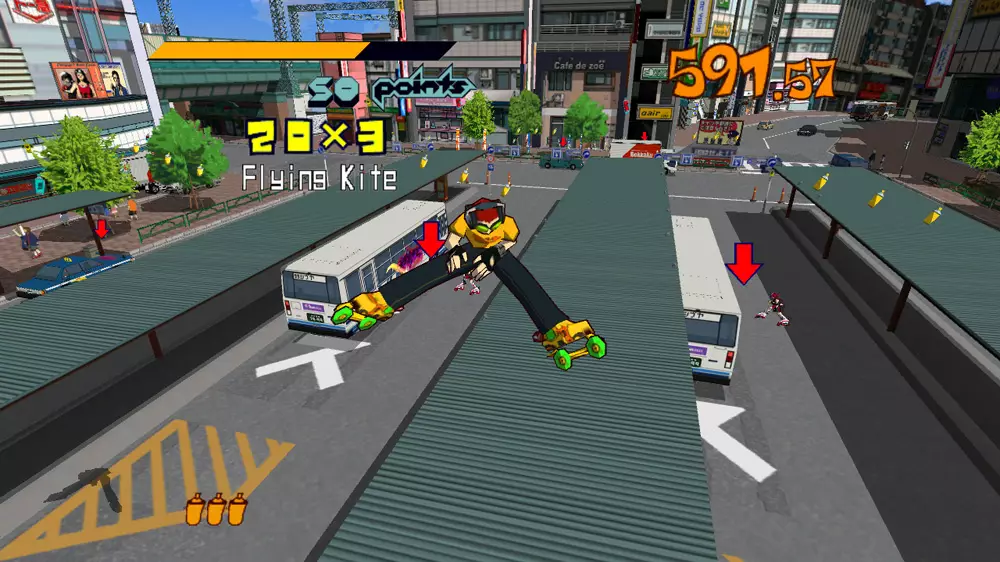
You could say that Jet Set Radio remains an underdog too, if only because its critical acclaim didn't also come with commercial success. The game sold just 40,000 copies in its first week in Japan. It wasn't until a multi-platform HD re-release in 2012 that it eventually reached lifetime sales of a million.
The same can't be said for the Tony Hawk franchise, which went on to earn an estimated $1.4 billion for Activision, a publisher no stranger to mass market tent-poles like Call of Duty. When you've reached that level of mainstream popularity, can you still be considered underground and counterculture? That didn't stop the series from slapping on the 'Underground' moniker later on, though it's about as convincing as a multinational corporation telling you that they're 'street'.
Advert
---
Related: Five Games That Made The SEGA Dreamcast
---
I don't want to undercut THPS as a game or accuse Hawk of being a sellout (he actually turned down the original one-time $500,000 buy-out licence fee, going on to earn much more in the long run). But as much as people are looking forward to the upcoming remaster, you can't help but get a sense of this being like one of those old rock band reunions as they tour their greatest hits to a crowd of other grown-ass adults.
And that's even more keenly felt when Hawk and the rest of the original line-up of skateboarders have been digitally scanned in their current forms, so that you're essentially playing as a bunch of middle-aged dads. It's the 'How do you do fellow kids' meme as a game.
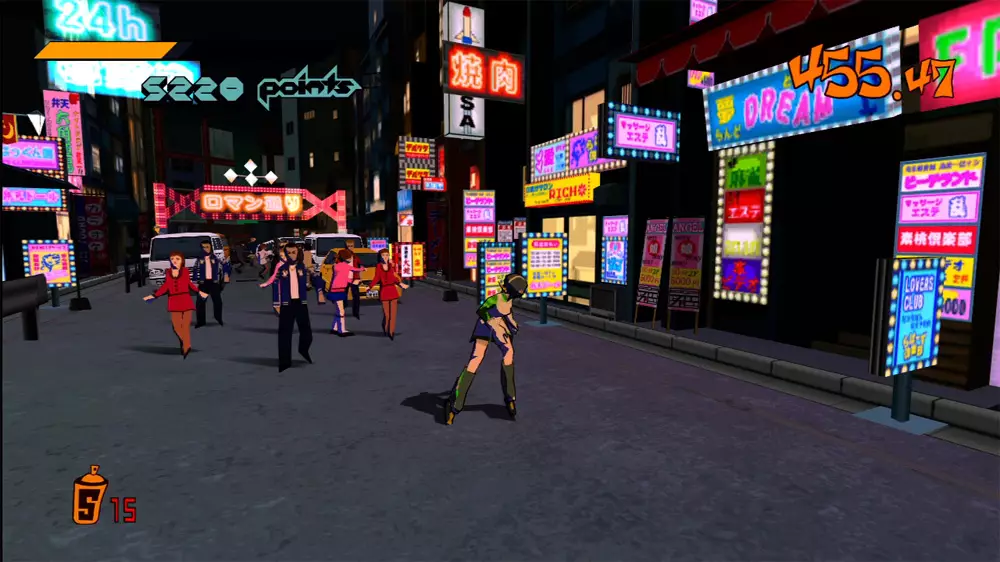
In comparison, Jet Set Radio remains as fresh as ever, mostly because its cel-shading hasn't aged a day. Its critical acclaim and lack of commercial success grants it a cult status revered by the cool kids. That allure is even more elusive for its fantastic sequel Jet Set Radio Future, which unlike the original's HD re-release remains only available on the original Xbox.
Back to the music analogy, Jet Set Radio is one of those underground bands that stayed under the radar. They might have gotten a rare booking at the John Peel tent, but they're ultimately at their best in a small sweaty basement playing to less than a hundred people in the know. Fame and riches may never come their way, but their influence continues permeating the scene, namechecked by a more popular artist as but a small sign of acknowledging their history.
There's more than just Tony Hawk these days, with the likes of Skater XL and Session bursting onto the scene. But there's still only one Jet Set Radio, forever youthful, rebellious, and unabashedly optimistic - the true pioneering sound of the underground.
Follow the author on Twitter at @damisanthrope, and GAMINGbible at @gamingbible. Not that we're shilling for SEGA or anything, but Jet Set Radio is only 83p on Steam at the time of publication. So you could always go and see what the fuss is about, if you liked, for hardly any pennies at all.
Featured Image Credit: SEGATopics: Feature, Sega, Tony Hawk, Dreamcast, Tony Hawk's Pro Skater, PlayStation, Retro Gaming